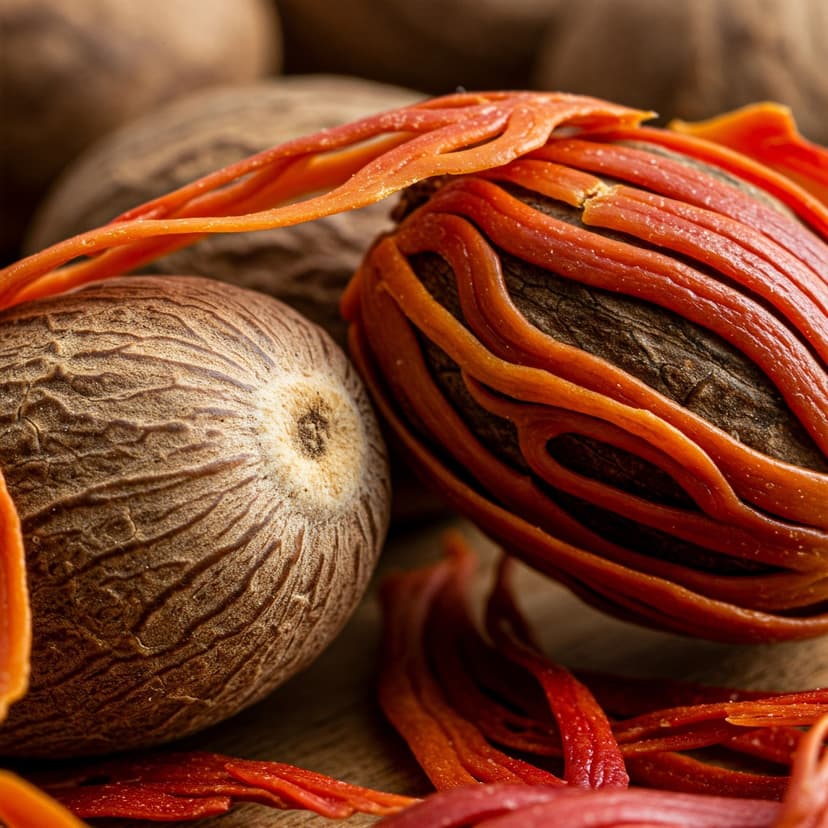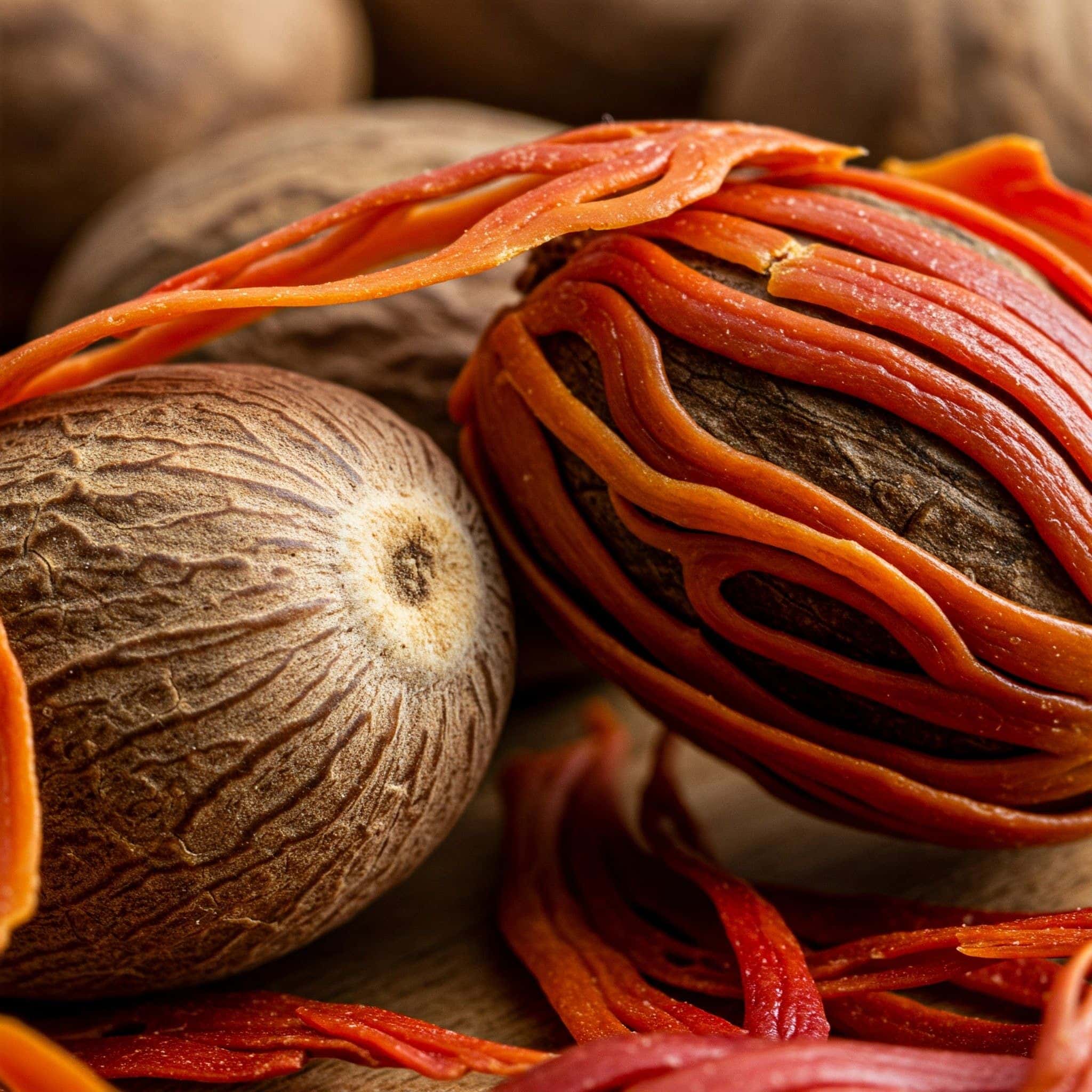


Common Name
Jaiphal (Hindi),
Muskot (Swedish),
Mace
Family
Myristicaceae
Parts Used
Seed (Nutmeg), Aril (Mace)
Native To
Native to the Moluccas (Spice Islands) in Indonesia; now cultivated in tropical regions such as the Caribbean, India, and Sri Lanka.
Historical and Traditional Uses:
Ayurveda used as a digestive tonic, aphrodisiac, and remedy for insomnia and respiratory issues. Traditional Chinese Medicine (TCM) Prescribed for diarrhea, abdominal pain, and boosting appetite. Middle Eastern and European Cuisine Nutmeg has long been used as a spice for flavoring foods and beverages. Folk Medicine employed to treat joint pain, inflammation, and headaches.
Chemical Composition:
- Volatile Oils: Myristicin, elemicin, safrole, eugenol.
- Phenolic Compounds: Lignans and flavonoids.
- Terpenoids: Pinene, camphene.
- Other Components: Fats, carbohydrates, dietary fiber, and minerals like calcium, magnesium, and potassium.
Pharmacological Properties:
- Antioxidant: Neutralizes free radicals, reducing oxidative stress.
- Anti-inflammatory: Alleviates joint and muscular pain.
- Digestive Aid: Stimulates gastric secretions, aiding digestion.
- Sedative and Relaxant: Provides calming effects, promoting sleep.
- Aphrodisiac: Enhances libido and sexual performance.
- Antimicrobial: Inhibits bacterial and fungal growth.
- Cognitive Enhancer: Supports memory and brain function.
Evidence-Based Uses and Benefits:
- Improves Digestion:
- Effect: Reduces bloating, nausea, and diarrhea.
- Key Study: Nutmeg extracts have shown to stimulate digestive enzymes and improve gastrointestinal health.
- Promotes Sleep and Relaxation:
- Mechanism: Acts as a natural sedative by modulating GABA receptors in the brain.
- Evidence: Studies show nutmeg enhances sleep quality in individuals with insomnia.
- Relieves Pain and Inflammation:
- Use: Topically or orally for arthritis, muscle pain, and joint inflammation.
- Research Insight: Myristicin and eugenol exhibit anti-inflammatory properties.
- Enhances Cognitive Function:
- Effect: Improves memory and reduces symptoms of anxiety and depression.
- Supports Sexual Health:
- Use: Acts as a natural aphrodisiac, improving sexual vitality.
- Antimicrobial and Antifungal Properties:
- Mechanism: Inhibits the growth of harmful pathogens.
Counter-Indications:
- Pregnancy: High doses may stimulate uterine contractions.
- Liver Disease: Contains safrole, which may stress the liver in excessive amounts.
- Neurological Conditions: Avoid high doses, as nutmeg may cause hallucinations or neurotoxicity.
Side Effects:
- Gastrointestinal Discomfort: Overconsumption may cause nausea or diarrhea.
- Neurological Symptoms: High doses can lead to dizziness, confusion, or hallucinations.
- Allergic Reactions: Rare cases of skin rash or itching.
Drug Interactions:
- Sedatives: May enhance the effects of CNS depressants like benzodiazepines.
- Anticoagulants: Contains eugenol, which may increase bleeding risk.
- Herbs: Use cautiously with other sedative herbs (e.g., valerian, chamomile).
Research and White Papers with Links:
- Anti-inflammatory Benefits: Research on nutmeg's role in pain and inflammation relief
- Digestive Health: (https://pmc.ncbi.nlm.nih.gov/articles/PMC9104743/)
- Cognitive Benefits: Research supporting nutmeg’s neuroprotective properties
Conclusion:
Myristica fragrans (Nutmeg/Jaiphal) is a versatile spice with numerous health benefits which including improving digestion, promoting relaxation, and relieving pain and inflammation. It's neuroprotective and antimicrobial properties make it valuable in traditional and modern medicine. However, caution should be exercised to avoid excessive intake due to potential toxicity. Nutmeg remains a cherished spice and herbal remedy with significant medicinal value when used responsibly.
